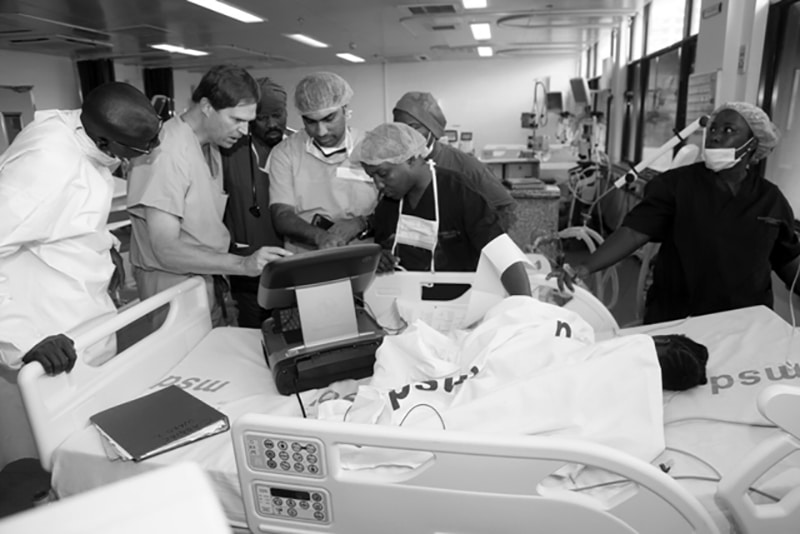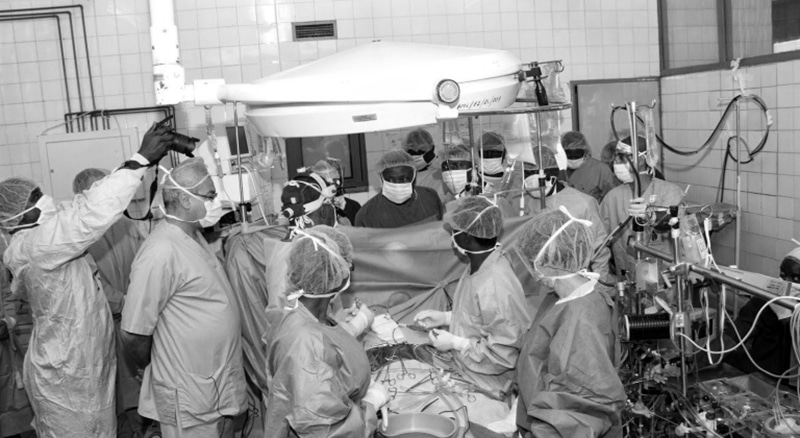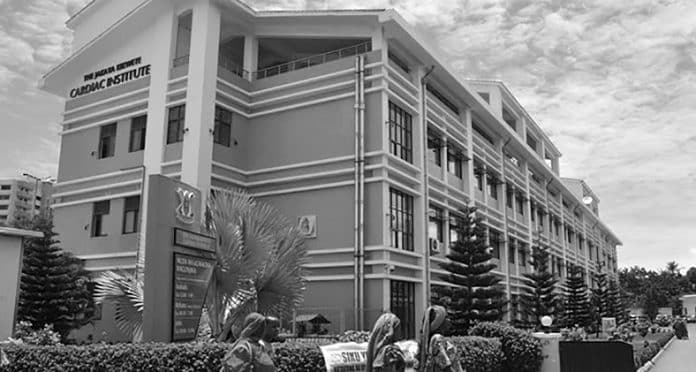Critical Insight: Jakaya Kikwete Cardiac Institute JKCI Tanzania
Overview of the JKCI Hospital
The JKCI [Jakaya Kikwete Cardiac Institute] is a State Specialized and University Health Care facility that specializes in cardiovascular care, research, and teaching. The Jakaya Kikwete Cardiac (Institution) Instrument, 2015 established the JKCI in October 2015. The Institution has 103 beds and sees 100 inpatients and 700 outpatients every week on average.
Cardiology facilities, Nursing facilities, Clinical Support Programs, Surgical systems, and Corporate Services are the six directorates that make up the Jakaya Kikwete Cardiac Institute’s 203 professional staffs. There are sixteen units in each of these divisions.
The Jakaya Kikwete Cardiac Institute is a state hospital that treats patients from all parts of Tanzania who have been referred for cardiovascular medical treatment by regional referral and authorized hospitals.
Jakaya Kikwete Cardiac Institute Functions
The Jakaya Kikwete Cardiac Institute is responsible for the following tasks:
- Control and management of the Institution and any other healthcare facilities offering cardiovascular health care that may be vested in it by this Act or any other legal law;
- Providing in-patient and out-patient healthcare services in compliance with medical principles;
- Supporting and promoting initiatives aimed at improving or advancing the people of the United Republic’s cardiovascular health and overall well-being;
- Reviewing and revising health education on cardiovascular initiatives for the benefit of the general public on behalf of the government as well as other public institutions;
- Equipping and leading the Institute into a national cardiovascular consultancy and teaching center;
- Offering cardiovascular service, therapy, and analysis, which are often given by specialist and teaching hospitals and universities;
- Offer suitable university-level cardiology, cardiothoracic, and vascular medical science training and education; resources for, and encouragement of, research and testing in the domains of cardiovascular medicine;
- Pursue the creation or manufacturing of drugs, laboratories, hospital equipment, and technology, either alone or in collaboration with any other individual or group of people inside and outside of the United Republic; and
- Assist students in preparing for examinations that may be performed by the appropriate authorities in relation to courses connected to cardiology, vascular surgery and cardiothoracic surgery training programs offered by the Institute
Aims and Objectives of the Jakaya Kikwete Cardiac Institute
The JKCI Aims at:
- Increasing Human Resource capacity, skills training, financing of equipment and supplies, reinforcing referral networks, and being able to conduct operation research to help lower mortality rate caused by heart conditions throughout all age groups at any and all levels inside the healthcare system.
- Through in-service teaching, continuing education workshops, and onsite mentoring initiative in medical supervision of CVD [Cardiovascular Disease], execution of non-invasive and invasive practices, and research techniques, a skilled pool of experts and assistants at all cadre tiers will be established. At all levels, improve Catheter referral systems (health centre, dispensary, regional hospitals and district hospital). The development of national Cardiovascular Disease guidelines, and a system to measure and assess cardiac care therapeutics outcomes, will establish standardized treatment and care. To fortify referral connections and enhance human resource role in medical management of Cardiovascular Disease [CVD], the Center will set up mentored in-service learning programs for the employees at recognized district and regional level satellite facilities.
- To enhance clinical and patient care, increase data collecting and analysis on CVD by reporting on clinical results and resource efficiency across the Jakaya Kikwete Cardiac Institute and all satellite referral facilities;
- Within the Institute, you can attend both outpatient and inpatient sessions.
- Increase the capabilities of other healthcare centers in terms of cardiovascular training.
- Carry out research in order to grow and develop the medical field.
Jakaya Kikwete Cardiac Institute Key Results Areas
The Jakaya Kikwete Cardiac Institute’s core business functions are represented by the following pivotal Result area.
- Limiting Total mortality rate Associated with Cardiac illnesses. This reflects the Institute’s efforts to reduce as whole morbidity and mortality associated with cardiac illness throughout all age categories at all levels of the healthcare system by helping to improve Human Resource capacity, skills training, procurement of equipment and supplies, improving referral networks, and conducting research operations.
- At all levels of the Cadre, a trained group of cardiac experts and support staff must be formed. This pivotal Result Area reflects the Institute’s initiative to create a qualified pool of cardiac experts and assistants at all levels of the Cadre through in-service teaching, continuing education workshops, and onsite mentorships in medical therapy of CVD, nonvasive and invasive processes, and research techniques.
- Improve CVD referral networks what in all levels (pharmacies, health centers, regional hospitals, and district hospitals). The Institution’s efforts to improve CVD referral mechanisms throughout all levels are reflected in this pivotal Result area (Medical equipment, healthcare center, state hospital, and local hospitals). The implementation of national Cardiovascular guidelines, and a system to observe and review cardiac health care treatment results, will create standardized care and therapy. To improve referral connections and improve Human Resource role in medical management of CVD , the Institute will organize supervised in-service training opportunity for employees at targeted district and regional level satellite facilities.
- Increase the amount of data collected and reported on cardiovascular disease. This pivotal Result Areas highlights the Institution’s steps to increase data collecting and reporting on Cardiovascular disease in attempt to optimize medical and patient care by reporting clinical results and resource usage between the Institute as well as all satellite referral sites.
Jakaya Kikwete Cardiac Institute Management
The Board of Trustees is in charge of the Jakaya Kikwete Cardiac Institute’s control and management. The Board is made up of seven members, one of whom serves as the chairman, who is selected by the Head of state of Tanzania. The Executive Director, on the other hand, has been delegated authority for the Institute’s day-to-day management, operations, and activities by the Board of Trustees. The President appoints the Executive Director, who works with five Divisional Administrators to fulfill his or her tasks.
The Jakaya Kikwete Cardiac Institute Workforce
The Jakaya Kikwete Cardiac Institute (JKCI) is proud of its young team, although it is highly specialized in its areas of expertise. Around eighty percent of the employees are between the ages of 20 and 44. This institution employs about 198 people, including the CEO, with a very significant gender disparity in favor of women Out of the 198 employees, 129 [65 percent] are women and 69 [35 percent] are male This is an extremely rare and well-known situation. JKCI employs 33 medical personnels and specialists/consultants. There are twenty-eight (14%) medical experts and 19 (10percent) medical officers in total. The bulk of the workers are in the position of Assistant Staff Nurse, in which there are sixty-one, accounting for 31% of the total.
Jakaya Kikwete Cardiac Institute Services
Pediatric Cardiology

The Jakaya Kikwete Cardiac Institute is dedicated to offering a comprehensive variety of pediatric cardiac treatments in a caring, patient-centered setting to children from birth via college age.
As the region‘s dominant provider of cardiovascular healthcare, Jakaya Kikwete Cardiac Institute [JKCI] pediatric heart specialist are highly skilled in the diagnosis and treatment of children who have cardiac abnormalities, whether they are congenital or acquired. The Jakaya Kikwete Cardiac Institute is dedicated to providing a wide array of services in a loving and caring environment, with a particular emphasis on treatment for children from infancy through adolescence.
To identify heart abnormalities and design a treatment strategy, Jakaya Kikwete Cardiac Institute’s doctors use cutting-edge technology to perform and evaluate diagnostic tests. The team manages heart conditions on a continuous basis, including care coordination with a pediatric physician if surgery is needed.
The pediatric cardiology team’s mission is to develop the finest possible care while also assisting children and their families during their childhood and teenage years.
Jakaya Kikwete Cardiac Institute Offers:
- Extensive experience – Jakaya Kikwete Cardiac Institute’s board-certified pediatric cardiologists have a lot of experience diagnosing cardiac abnormalities utilizing the most up-to-date technology.
- Diagnostic testing that is more advanced, such as:
- EKGs [Electrocardiograms].
- Stress echocardiograms
- Echocardiograms
- Treadmill tests
- Holter monitors
- Echocardiograms of the fetus, that is, the latest technology showing the baby growing in the womb.
- Healthcare planning and treatment programs- If necessary, Jakaya Kikwete Cardiac Institute coordinate care with maternal-fetal medicine specialists as well as other pediatric doctors.
- The Follow-up Care-Patients who are born with a cardiac defect may require follow-up care throughout their lives. Adults with congenital cardiac disease can also receive evaluation and follow-up care.
- Easy appointments-To save travel time for patients, Jakaya Kikwete Cardiac Institute provides flexible appointments hours in a number of sites all across the country.
Vascular

Most illnesses of the vascular system brought to the Jakaya Kikwete Cardiac Institute are treated by vascular and endovascular specialists. They’ve received training in the diagnosis and treatment of disorders that impact the vascular system, along with the heart.
Treatments are the first of a kind. The professional team of experimental cardiologists at the Jakaya Kikwete Cardiac Institute have established a reputation for providing state-of-the-art vascular treatment and care. The following are some of the diseases that are treated:
- Cerebrovascular diseases
- Venous disease
- TCAR (Transcarotid Artery Revascularization)
- PE/DVT
- Peripheral arterial disease
- Aneurysmal disease
- Pelvic Congestive Syndrome
Venous Disease
Persistent leg pain, fatigue, or heaviness that persists could indicate a more serious problem such peripheral venous or artery disease. Patients who are having these symptoms should speak with their doctor about seeing a vascular expert at the Jakaya Kikwete Cardiac Institute.
Limb Salvage
PAD [Peripheral Arterial Disease] affects one out of every twenty Tanzanians over the age of fifty. It is a dangerous condition that is frequently undiagnosed. Peripheral Arterial Disease causes blood flow to be restricted due to narrow arteries. PAD can result in amputation, heart issues, and sometimes even death if left unchecked. Acute limb ischemia is one of the disorders for which the Jakaya Kikwete Cardiac Institute is at the frontline of diagnosis, ongoing care, and treatment. In order to reduce the amount of amputations in Tanzania, Jakaya Kikwete Cardiac Institute’s exceptional surgeons integrate cutting-edge technology with outstanding expertise and experience.
Cardiovascular Surgery
Operations on the heart or arteries at the Jakaya Kikwete Cardiac Institute are frequently performed to address problems of heart disease, such as when blood does not reach organ tissue, rectifying genetic heart disease, or treating a lot of causes that contribute to valvular heart disease.
The Jakaya Kikwete Cardiac Institute have procedures that are the first of their kind. Jakaya Kikwete Cardiac Institute’s professional team of interventionist cardiologists has developed a reputation for providing the country’s most cutting-edge vascular treatment and care. The following conditions may be treated:
- Pelvic Congestive Syndrome
- PE/DVT
- Venous disease
- Peripheral arterial disease
- Transcarotid Artery Revascularization (TCAR)
- Aneurysmal disease
- Cerebrovascular diseases
Abdominal Aortic Aneurysm (AAA)
Whenever the big blood vessel that feeds blood to the belly, pelvis, and legs gets swollen, it is known as an abdominal aortic aneurysm. A transplant or an endovascular stent graft can be used to repair this.
Limb Salvage
The PAD [Peripheral Arterial Disease] result in small arteries that might restrict blood circulation. PAD can cause amputations, cardiac issues, and sometimes even death if left untreated. Acute limb ischemia, for example, is a disease in which Jakaya Kikwete Cardiac Institute is at the frontline of diagnosis, ongoing care, and treatment. Jakaya Kikwete Cardiac Institute’s surgeons use cutting-edge technology to help Tanzania decrease the number of amputations.
Venous Disease
Persistent leg pain, fatigue, or heaviness that persists could indicate a more serious problem such peripheral venous or artery disease. Patients who are having these symptoms should speak with their doctor about seeing a vascular expert at the Jakaya Kikwete Cardiac Institute.
Transcarotid Artery Revascularization (TCAR)
A catheter will be inserted into the carotid artery to fix the blockage and prevent any future strokes in people with this condition.
Diagnostics and Imaging at the Jakaya Kikwete Cardiac Institute
Cardiac Diagnostics
To detect cardiac problems, the Jakaya Kikwete Cardiac Institute provides a broad variety of diagnostic testing. However, Jakaya Kikwete Cardiac Institute provides a selection of tests for patients experiencing chest discomfort that give a non-invasive tool to evaluate the condition of a patient’s heart before referring them to the cardiac catheterization or electrophysiology laboratories. Doctors examine the results of the following tests to identify the best course of treatment for patients:
- Echocardiogram
- ECG or EKG [Electrocardiogram]
- 3-D Imaging
- Cardiac ultrasound
- Cardiac MRI
- Imaging with X-ray,’
- Angiogram
- Attenuation
- Correction
- Pulmonary function trial
- Transesophageal Echocardiogram (Tee)
- Stress testing (treadmill testing)
- Nuclear medicine
- Stress thallium
Cardiac Imaging
Modern imaging is used in radiology to diagnose and, in certain cases, cure diseases inside the body. The Image guidelines can be used by Jakaya Kikwete Cardiac Institute interventionalist radiologists to give a minimally invasive option to some operations.
For several radiology services, the Jakaya Kikwete Heart Research center has 24 hours and 48 hours appointments, as well as nighttime and weekend visits. This is because the institute has a fully equipped radiology department.
- Advanced CT services
- Ultrasound
- Digital X-Ray
- PET/CT
- Bi-plane
- DexaScan
- Cardiac MRI
- Vascular services
- Nuclear medicine
Jakaya Kikwete Cardiac Institute Contacts
P O Box 65141, Dar es Salaam,
West Upanga, Kalenga Street,
Ilala District, Dar es Salaam Region.
Telephone: +011 255-22-2152392
Mobile: +011 255 782042019
Email: info@jkci.or.tz
For more articles related to Hospitals in Tanzania, click here!

































